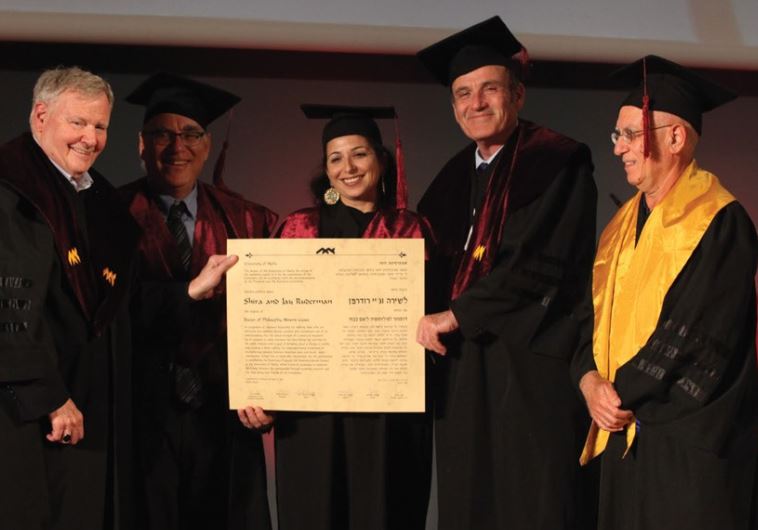Disabled Israelis still face stigma, exclusion, Ruderman foundation director tells ‘Post’
‘People should realize they want to be part of their communities.’
 SHIRA RUDERMAN (center) is awarded an honorary doctorate at the University of Haifa.(photo credit: GIL HADANI)
SHIRA RUDERMAN (center) is awarded an honorary doctorate at the University of Haifa.(photo credit: GIL HADANI)